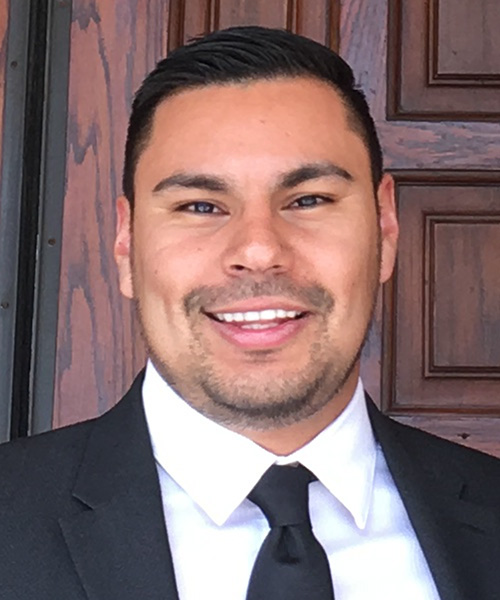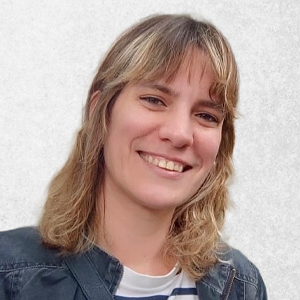
From antibiotic resistance to an antibody targeting immune cells
When Diego Pedroza was a child growing up in Texas, his father would tell him how the human body works.
“Even though my dad didn’t go to college, he would read a lot about biology and physics and talk about it,” Pedroza said. “He explained that illnesses come from viruses and bacteria invading our bodies or that proteins help build muscle when you lift weights.”

Pedroza’s interest grew in high school when he began taking chemistry and biology classes.
“I had a high school teacher who asked me to write about antibiotic resistance, which is a problem in my hometown, El Paso,” he said. “I remember looking at the chemical structure of two different antibiotics. I didn’t understand much at that time, but I thought it was very cool. I just fell in love with it.”
Initially drawn to chemistry, Pedroza pursued a degree in biochemistry at the University of Texas at El Paso and volunteered in Shizue Mito’s lab where he worked on synthesizing amino acids.
When he was awarded a summer internship at Texas Tech University Health Sciences Center El Paso, he began working on breast cancer, molecular biology and endocrinology; it was completely different from the chemistry research he knew.“I also fell in love with it,” he said. “I thought that was even cooler, because I was testing drug compounds on cancer cells, and it felt like I was doing something that could truly make a difference.”
After the internship, Pedroza returned to the University of Texas at El Paso and joined Renato Aguilera’s lab, where he was able to combine his previous experiences to test whether synthesized compounds from his first lab could kill cancer cells. The project led to an exciting milestone: writing his first scientific manuscript.
“To my surprise, it got published,” he said. “As an undergrad, having a first-author paper was a huge confidence boost — it made me feel like I belonged in research.”
Pedroza continued to work in Rajkumar Lakshmanaswamy’s lab while earning his master’s degree at Texas Tech University. He focused on studying hormones in the breast and decided he wanted to dedicate his life to research. After his master’s, he earned a Ph.D. in the same lab, publishing four first-author papers and contributing to others’ manuscripts. Again, he felt like he belonged.
Pedroza accepted a postdoctoral position at Baylor College of Medicine in the labs of Jeffrey Rosen and Xiang H-F Zhang, where he faced a challenging period of grant rejections, with about eight or nine submissions turned down.“My boss was very supportive and encouraged me to keep trying, but I was devastated when one grant was triaged,” he said. “For a month, I even thought my career as a scientist might be over.”
His perseverance paid off when he received the results of a three-year grant application from the American Cancer Society — a perfect score. After that, he also entered the American Society for Biochemistry and Molecular Biology’s Maximizing Opportunities for Scientific and Academic Independent Careers, or MOSAIC, program, which supports postdocs and new investigators from diverse backgrounds who are embarking on careers at research-intensive institutions.
Pedroza has benefited from the program’s mentorship.
“I’ve already had the opportunity to take advantage of the program by talking to one MOSAIC mentor who has given me advice on the next steps in my career,” he said.
In the lab, Pedroza is working on targeting tumor-associated macrophages, immune cells that infiltrate tumors and help cancer cells rather than attacking them. In genetically modified mice, he found that combining an antibody targeting these macrophages with chemotherapy and anti-PD-1 therapy not only works but also shows prolonged antitumor effects in lung and liver metastases.
For aspiring researchers, Pedroza has just one piece of advice.
“Do not just do one thing,” he said. “Explore different fields. Do chemistry, do physics, cell biology, molecular biology … Eventually, you’ll find the one thing you love.”Enjoy reading ASBMB Today?
Become a member to receive the print edition four times a year and the digital edition monthly.
Learn moreGet the latest from ASBMB Today
Enter your email address, and we’ll send you a weekly email with recent articles, interviews and more.
Latest in People
People highlights or most popular articles

Embrace your neurodivergence and flourish in college
This guide offers practical advice on setting yourself up for success — learn how to leverage campus resources, work with professors and embrace your strengths.

Survival tools for a neurodivergent brain in academia
Working in academia is hard, and being neurodivergent makes it harder. Here are a few tools that may help, from a Ph.D. student with ADHD.

Quieting the static: Building inclusive STEM classrooms
Christin Monroe, an assistant professor of chemistry at Landmark College, offers practical tips to help educators make their classrooms more accessible to neurodivergent scientists.

Hidden strengths of an autistic scientist
Navigating the world of scientific research as an autistic scientist comes with unique challenges —microaggressions, communication hurdles and the constant pressure to conform to social norms, postbaccalaureate student Taylor Stolberg writes.

Richard Silverman to speak at ASBMB 2025
Richard Silverman and Melissa Moore are the featured speakers at the ASBMB annual meeting to be held April 12-15 in Chicago.

Women’s History Month: Educating and inspiring generations
Through early classroom experiences, undergraduate education and advanced research training, women leaders are shaping a more inclusive and supportive scientific community.

